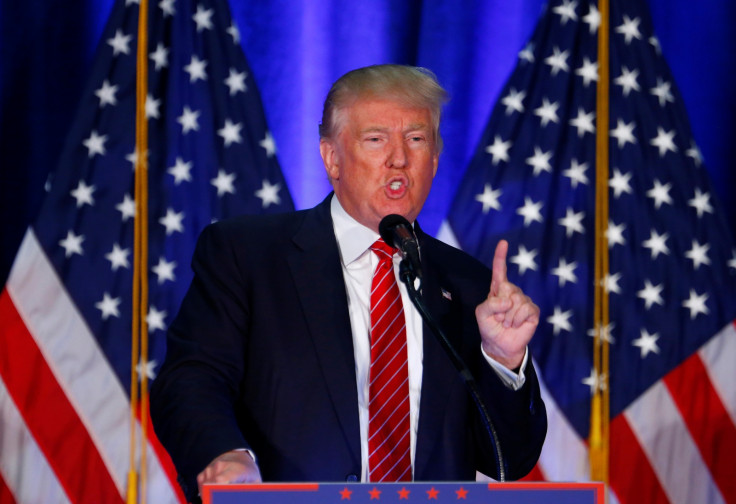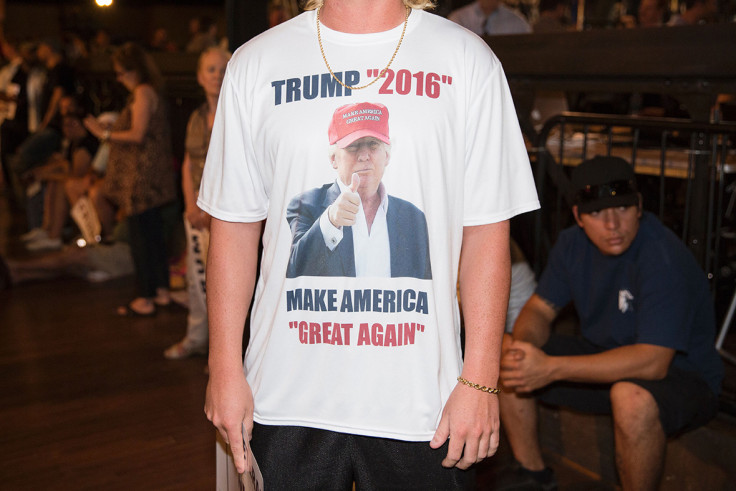Brexit tremors find their way to the US presidential election campaign
Clinton must stop Trump from framing election as a single issue 'claim-our-country-back' referendum-style vote.

The UK referendum vote to leave the European Union sent shock waves across the world in June, including to the United States in this critical election year. There are many layers of autopsy to dissect on the Brexit vote, but on its most simple and pragmatic level, we now have to accept that what may have previously appeared impossible for all the intellectual arguments that anyone with half a brain chose to assemble, is now possible – the right-wing populist "build-a-wall" candidate Donald Trump has a real chance of becoming the American president on 8 November.
Indeed many right-wing nationalist politicians, not just Trump, stand elevated after the 23 June vote, and one big step closer to success across Europe – including the French Front National leader Marine Le Pen who is now expected to easily qualify to be one of the final two candidates to contest for the presidency of France next May.
Hillary Clinton's campaign issued a wake-up call addressing that message, writing: "No matter what the collective wisdom of our political punditry has to say between now and November, Donald Trump has a real chance of winning this election."
The Democrats, led by President Barack Obama and Clinton, were firmly in favour of the "Remain" in Europe side of the UK vote, whereas Trump had come down on the side of the "Leave" campaign, and thus claimed ownership of victory while standing on the first green of his $200m (£153m) golf course in Turnberry, Scotland, over the weekend.
Yet in his typically bravado style, he totally ignored the nuanced complicated reality that Scotland had indeed voted by an overwhelming majority to stay in the EU and will now seek to break away from the UK in order to achieve this.
There lies the ultimate challenge to Clinton and opportunity for Trump, which is to frame the US presidential election as a single issue style referendum on the elusive vacuous nationalistic concept of "reclaiming your country" – build a wall to stop immigrants and all will be well.
For Clinton, the Democrats and the 48% who voted for the UK to remain in the EU, the world is a much more complicated place than that, with multiple issues and interests, both local and international that must coexist for consideration and debate. Trump couldn't give a fiddlers' about all those shades of grey and stands to gain immensely over the next few months as the world's media, leaders and markets fiddle with the single narrative of the UK leaving Europe.
Still, hard, cold reality on the scale we saw on the global markets 23 June will be very difficult for even the blinkered Trump campaign and its supporters to ignore, as Brexit drove the pound to the lowest level in more than 30 years and wiped about $3trn from stock market values while sparking demand for safe haven assets from US treasuries to gold.

MSCI's global stock index plunged 4.8% in the biggest slide since August 2011. The Dow Jones Industrial Average sank more than 600 points, or 3.7%, to erase gains for the year, while European stocks slid 7% in their worst day since 2008, before ultimately recovering.
Clinton's advisers will need to work overtime to highlight all the ways that a presidential election is not a referendum. The Brexit vote did not have a candidate. The decision about the presidency involves far more than disagreements over public policy. Character and leadership are going to be paramount in this choice for Americans in November.
While in the US, Trump draws strengths from many of the same frustrations that emerged in the Brexit campaign, there are many differences between a US presidential election and the UK referendum that will emerge in the coming months in the heat of battle. This will challenge the Republican candidate's ability to sustain a one-trick pony nationalism "us vs them" message.
For starters, the US has a significantly larger, younger and more racially and ethnically diverse population than Britain. About 15% of the British electorate are non-white compared with more than 25% in a US presidential election.
Another major difference is that the US presidential election is actually 50 separate elections held concurrently across 50 states that have a diversity of relevant local issues, articulated by an array of candidates running for a multitude of offices on the same ballot sheet.
That said, in this technology age of sound bite headlines and 30 second attention spans, Clinton is going to have to go back to the drawing board to find an Obamaesque "Yes We Can!" message with a punch that can compete with the emotional sloganeering of Trump's "Make America Great Again."
Sean Evers is the founder and managing partner of Dubai, UAE-based strategic consultancy Gulf Intelligence. In the run up to the 2016 US presidential election, Sean is authoring a series of articles for the International Business Times scrutinising America's socioeconomic challenges and the response of both the Trump and Clinton campaigns to economic demands of the electorate.
© Copyright IBTimes 2025. All rights reserved.






















